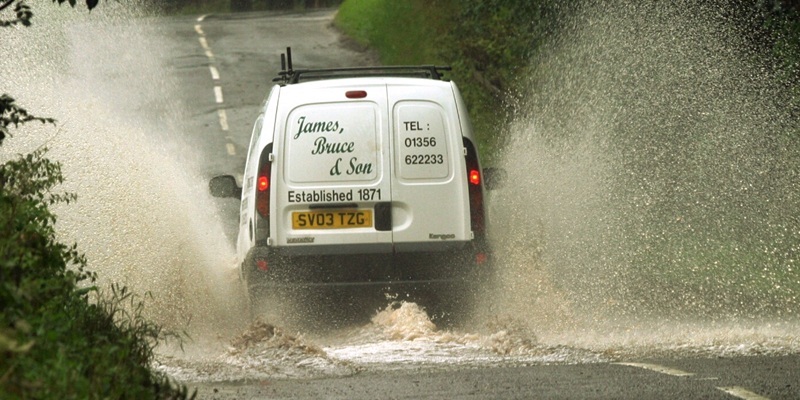Like the waters of the South Esk when they swamp homes in Brechin, the cost of implementing a scheme to prevent flooding in the burgh keeps rising.
Latest estimate for a scheme capable of withstanding one-in-200-year floods is £14.2 million, up £1 million on the previous forecast — which in turn was 45% higher than the one earlier.
Concerned residents in River Street have anxiously watched the South Esk for years. However, there are major barriers to the project favoured by Angus Council for offering them protection, not least the current state of the sewerage system.
So far, Scottish Water has given no clear indication of plans to upgrade it but, unless it does, the pipes will render flood defences useless, as they are not capable of withstanding large-scale flooding.
Any attempt by the council to go it alone and upgrade the sewers seems unlikely as that could add significantly to the costs and jeopardise the scheme’s financial viability.
In a report to go before the infrastructure services committee next week, councillors will hear that Scottish Water is showing no signs of movement on the issue.
While recommending the plan proceed for the present, officers will also ask councillors to allow investigations into alternative designs for smaller-scale defences that could circumvent the problem but provide lesser protection.
“The proposed scheme is now at a stage where the process of obtaining statutory consent for the project from the Scottish Government may commence, notwithstanding the uncertainties regarding the affordability and funding of the project to the council,” says Eric Lowson, director of infrastructure services, in a report to the committee.
Despite the rising costs, he states, the cost-to-benefit ratio showed the full flood prevention scheme was still robustly cost-effective.
Officers’ favoured option is construction of a flood wall along River Street with a raised footway behind it to maintain the river view for pedestrians, with an earthen levee built to protect the East Mill Road caravan park.
However it is also recommended that councillors consider the options to implement measures either of a lesser level of protection or in a piecemeal manner, and a programme of works that could give some short-term protection.
One interim measure that seems definitely ruled out is dredging the river, with officers arguing it would cost too much, have minimal benefits and have a devastating impact on rare freshwater species.
Removing sediment from the channel of Brechin Bridge has also been ruled out as of little benefit in mitigating flood risk and unlikely to be sustainable.
It is planned to hold a public meeting and exhibition in Brechin during the three-month application consultation period, September to December, to explain and promote the proposed scheme, and a further meeting of the community sounding panel which brings together councillors and representatives of interested groups, is also scheduled for September 15.
